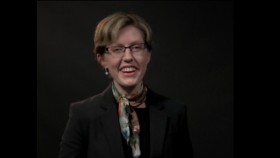In a world of misinformation, skepticism is needed
How do our feelings shape our facts?
Ms Deva Ly and Ms Mary Jiang - psychology PhD scholars supervised by Dr Eryn Newman at the Australian National University (ANU) discussed the research they have undertaken about testing truth and how feelings shape facts.
“There are a combination of factors that make people particularly vulnerable to endorsing misinformation, and our online behaviour plays a role. For example, we may not invest our full attentional resources when we are looking at information. In fact, most of the time, we are looking for entertainment rather than truth,” Ms Ly said.
“What is particularly problematic about misinformation is that it often has features that we would usually draw on to infer truth. Meaning, it might masquerade as coming from a reliable source. It might have photographs that help us to imagine and process the information more easily, giving us this illusion of familiarity and truth. Or it might contain ideas that are consistent with ideas that we already believe. In more extreme cases, there are deep fakes that have all the features of true information but are made for nefarious purposes,” Ms Ly shared.
“Under conditions of uncertainty people may be more inclined to rely on affective, intuitive reactions to information, which is why the pandemic has been a particularly worrying environment for the circulation of false information.”
“Beyond the pandemic, misinformation exposure and potential endorsement is, at least in part, tied into our reliance on social media for information. Using social platforms as a source of information can result in ‘information overload’ making it even more difficult to ascertain what is true,” Ms Ly advised.
Ms Jiang agreed, and added, “Misinformation existed well before the pandemic, but there has been increasing concerns regarding misinformation, given the emerging evidence regarding links to vaccine hesitancy.”
“The online space also offers an opportunity for people with like-minded ideas to virtually congregate in vast numbers to reinforce and strengthen their shared beliefs, even when those beliefs aren’t based on facts.”
“Emerging research shows that in order to protect ourselves from misinformation we need prompts to be skeptical of incoming information and engage in considered, analytical reflection before deciding whether to accept it as truth,” Ms Jiang noted.
“I found something similar in my own research, where if we prompt people to think about whether a claim might be aligned with climate change dissent, people are less influenced by the simple repetition of those claims.”
Ms Jiang explained, “The big challenge to combat misinformation is finding a way to make solutions scalable and that can impact on a person’s decision making over the long term, so that regardless of the topic people will use empirically informed judgements to weed out the mis or disinformation and establish evidence-based truth.”










